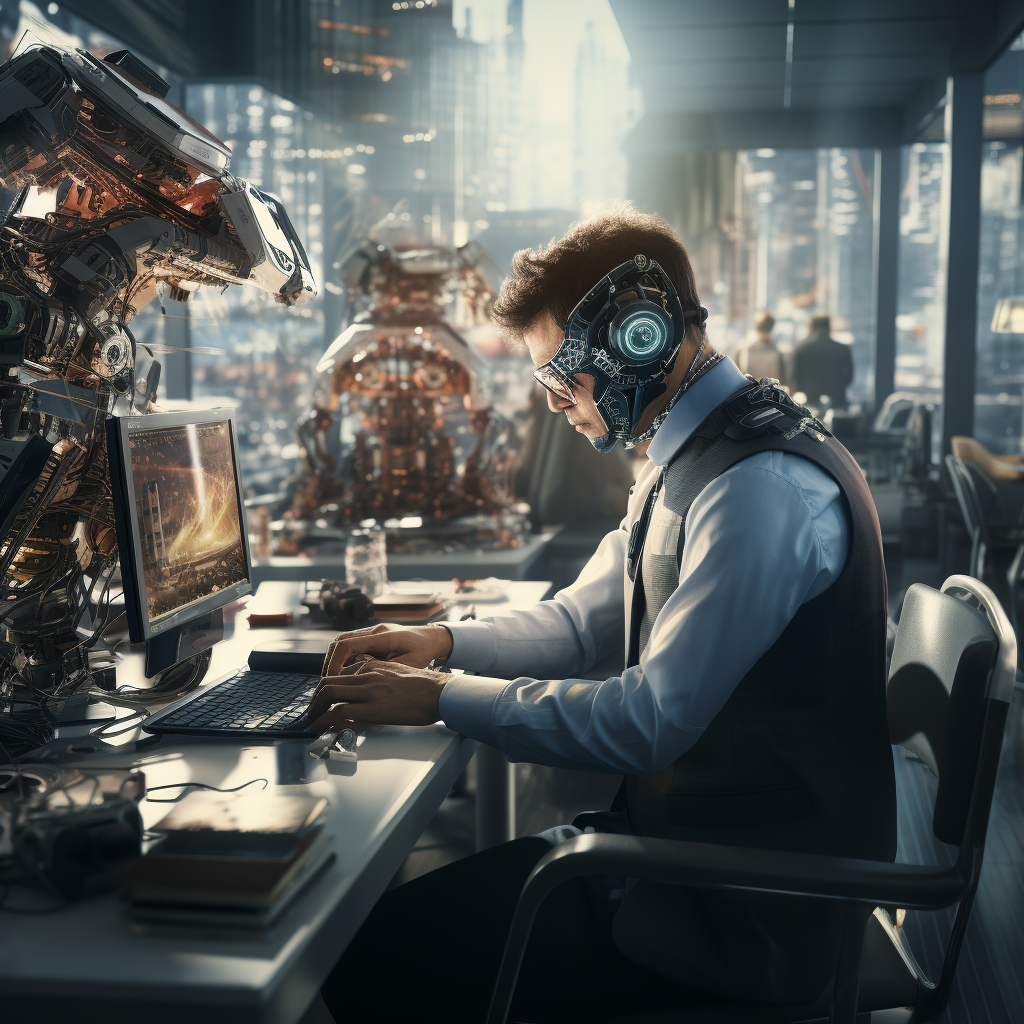In a world where technological advancements are reshaping industries at an unprecedented pace, the rise of artificial intelligence (AI) has emerged as both a beacon of innovation and a harbinger of economic disruption. The AI revolution, characterized by intelligent machines, automation, and advanced algorithms, is poised to transform the global economy. In this article, we'll delve into the profound implications of AI for the job market, its potential to disrupt traditional employment, and the steps individuals and societies can take to navigate this transformative era.
The AI Revolution: A Brave New World
The advent of AI has ushered in a new era of automation and digital transformation. AI systems, fueled by big data and machine learning, are increasingly capable of performing tasks once reserved for humans. This transformation extends across a wide spectrum of industries, from manufacturing and logistics to finance and healthcare. Here are some key aspects of the AI revolution:
1. Automation Across Industries:
AI-powered automation is streamlining processes and workflows, significantly improving efficiency and reducing costs. In manufacturing, robots equipped with AI algorithms can perform intricate tasks with precision, while in the service sector, chatbots and virtual assistants are handling customer inquiries and support.
2. Labor Displacement:
As AI systems become more sophisticated, there is a growing concern that they will replace human workers in various job categories. Repetitive and routine tasks are particularly vulnerable to automation.
3. Augmentation of Human Work:
AI is not solely about job displacement; it's also about job augmentation. AI systems can enhance human decision-making, provide valuable insights, and improve productivity in many roles.
4. Skill Transformation:
The job market is evolving, demanding new skills and competencies. AI and automation are driving the need for digital literacy, data analysis, and problem-solving abilities.
5. Economic Impact:
The economic impact of AI is profound. It has the potential to boost productivity and innovation, but it may also exacerbate income inequality if not managed properly.
Job Disruption by AI: Separating Myths from Realities
While the prospect of AI disrupting jobs can be alarming, it's essential to separate myths from realities:
Myth 1: All Jobs Will Be Automated: While AI can automate certain tasks, many jobs require a combination of skills, creativity, and emotional intelligence that machines cannot replicate.
Myth 2: AI Will Lead to Mass Unemployment: Historically, technological advancements have transformed industries and created new job opportunities. While there may be job displacement, there will also be new roles created to support AI and emerging technologies.
Myth 3: Job Disruption Is Inevitable: The impact of AI on jobs depends on how societies and businesses adapt. Proactive measures, such as upskilling and reskilling initiatives, can mitigate disruption.
Navigating the AI Revolution
As individuals and societies brace for the AI revolution, there are several strategies and considerations to navigate this transformative period:
1. Continuous Learning:
Embrace a lifelong learning mindset. Invest in education and training to acquire skills that are in demand, such as data analysis, programming, and AI ethics.
2. Adaptability:
Cultivate adaptability and resilience in the face of change. Be open to embracing new technologies and exploring different career paths.
3. Collaborative AI:
Explore opportunities for collaboration with AI systems rather than fearing their presence. Many industries are seeing humans and AI work together to improve outcomes.
4. Policy and Regulation:
Governments and organizations must establish policies and regulations that ensure the responsible use of AI. This includes addressing issues like data privacy, bias in AI algorithms, and the ethical implications of AI.
5. Universal Basic Income (UBI):
Some proponents argue for UBI as a way to provide financial stability to individuals in the face of potential job displacement. While it's a contentious idea, it's gaining attention in discussions about the future of work.
Embracing Change in the Age of AI
The AI revolution is poised to redefine the job market and reshape the global economy. While it presents challenges, it also offers opportunities for innovation, productivity improvement, and the development of new industries. By embracing change, fostering continuous learning, and adopting a proactive approach, individuals and societies can harness the potential of AI while mitigating its disruptive effects.
The path forward in the age of AI is not about resisting technological progress but about adapting, learning, and finding ways to coexist with intelligent machines. In this brave new world, the key to job security lies in our ability to evolve and thrive alongside the very technology that is set to transform our economy.

0 comments:
Post a Comment